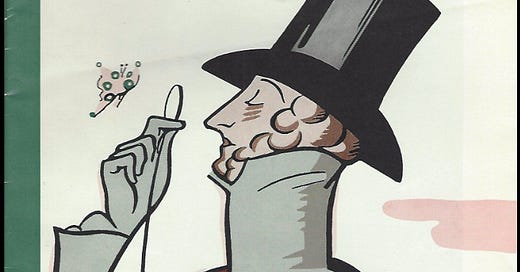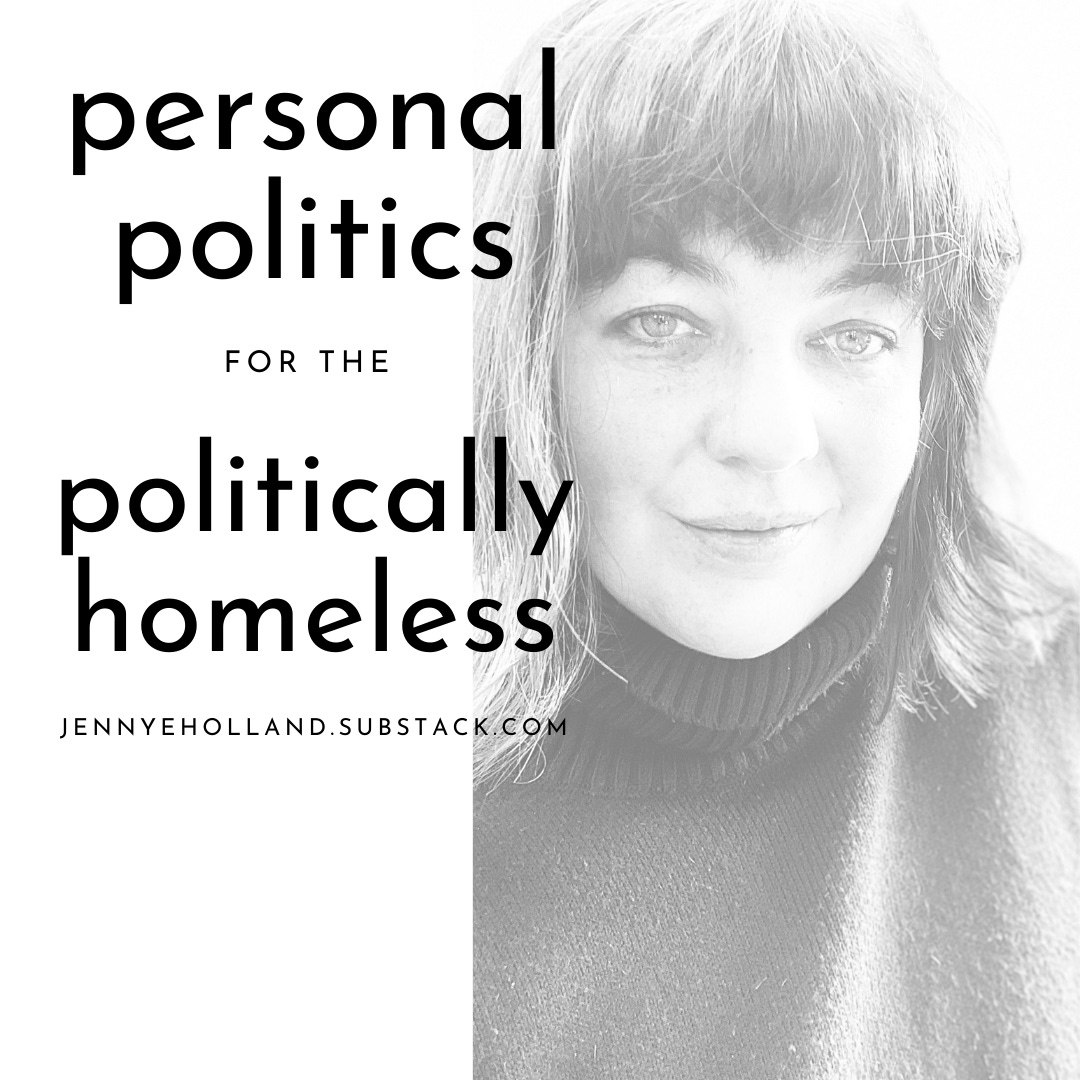The New Yorker covers the cultural undead
In which the legacy media goes on safari among the cancelled
For a while, in my twenties, I worked in New York City media and enjoyed the clubby feel of social gatherings where myself and my peers would drink beers, talk about our career hopes and complain about George Bush. There are many in-crowds in a big place like New York — fashion, Wall Street, music, art, movies — and ink-stained wretches on the lower rungs of the newspaper business were hardly the top dogs. But there was a comradeship, a sense of being in a group of smart, ambitious people, which was very validating.
In the two decades since, not only did I leave that world entirely — for reasons that were more personally political than politically political — but I have also watched from afar as it transformed into something quite unrecognisable from an ethical, intellectual, cultural, even moral standpoint.
My departure also felt, for a very long time, like a professional failure. Even though I did a lot in that time — I did a Masters, I got divorced, I went on the dole, I taught English as a second language, I opened a restaurant, I rebuilt my life and raised my kid and remarried — it was all 3,000 miles away from the New York media scene. No longer in the club. And as failures tend to do, it felt intensely about me. My inadequacies, my bad luck, my poor choices. It was bewildering to find myself so far outside of a group that I once felt proud to be part of. As I’ve written before, it’s painful to be fallen.
All of which is a roundabout way of saying, I understand where today’s young media types are coming from, up to a point. I understand the allure of belonging, and the pain of losing it.
However, this week I came across a long think piece that shows what an intellectually dishonest, even shabby, enterprise that once-vaunted industry has become. Throughout media, the arts, and pretty much each permutation of the creative jobs ecosystem, if you want to keep your tenuous foothold, you must denounce the pariahs, who annoyingly continue to walk among the right-thinking in-group. They are ghostly, chilling reminders of what happens when you are cast out.
This week the New Yorker published an article about a group of people in academia and media who share the experience of having been cast out of polite society, or what we now call cancelled. The writer, Emma Green, seems to think she’s being fair. So she joins the group, who call themselves ‘thought criminals,’ for drinks at a Manhattan restaurant, bravely venturing into their contaminated space.
Anyone still in possession of the power of objectivity will see the techniques of othering that she employs. The cancelled people she meets “are mostly white.” Another way of saying that is: they are not all white, but putting it that way would ruin the vibe she’s creating here.
One of the attendees, a Harvard alum who wrote an opinion piece as an undergrad criticising affirmative action, describes herself as “naive” for “jotting off a newspaper column about such a complex issue.”
Do you see the undermining at work here? Green cannot debate the merits of affirmative action, because that is against the religion of her employer. So she instead handles it like you do a dirty diaper, quickly tying it up into a bag and throwing it in the nearest trashcan.
Green, probably unwittingly, reveals how, at the most fundamental level, the ultimate goal for many media people is not “the truth.” It’s the perfect lifestyle, a cool job title, the ability to name drop. She writes of the Harvard grad, now 31: “she’s got a dream job: she’s a stand-up comic and runs her own science-focussed communications business writing comedy-filled speeches and website and social media copy for clients ranging from National Geographic to Neil deGrasse Tyson.” The grasping, social-climbing impulse in New York media never rests.
This being 2023, Green must also cast shade on those heretical women who believe biology is real. She writes that one woman at the meet up doesn’t believe “transgender women — who she calls male athletes —” should be eligible to compete in women’s sports. Another person in the cancelled group concedes that this is “a very hard line.” The fact that there might be any merit to this position is simply not entertained.
Green muses: “I couldn’t help wondering how the conversation might sound to someone who is intersex or transgender, to hear people debating about their bodies and their lives over drinks and appetisers.” Again, the signal is clear: Green might be willing to give these people some of her precious attention, but she is not on the same side.
The way Green writes it, most of the so-called ‘thought criminals’ are almost apologetic — yet another subtle reinforcement of the ideological hierarchy and a signal to those who remain on the correct side. Only a writer called Ben Appel seems disinclined to admit his sin: “I kind of resent that we have to sit here and explain what this current landscape is like…Every motherfucker knows what this landscape is like,” Green quotes him as saying. Amen, brother.
In the end, though, despite the care Green takes to stand apart from the cancelled, as far as the feedback from the Twitter-verse goes, she may as well have done a puff piece on Hitler. “Being friends with Nazis makes you a Nazi, and writing about them this way also makes you a Nazi. This sucks,” wrote one.
“Are their white hoods from Chanel or Hugo Boss?,” asks another.
Yet another just goes straight back to high school tactics, writing “you can cover losers if you do it in a cool interesting way.”
The tribes are divided, and there is no bridge between them. How this is not more obvious to those in the cancelled tribe who entertained the possibility of a fair hearing from the New Yorker, is to me the most important question.
Former math teacher turned whistleblower Paul Rossi, who is a friend of mine going all the way back to my years in the media, alerted me to the article, and we spoke about his frustration with the impulse of the cancelled to win back the affections of those who cancelled them.
“There is a mildly tragic second act of cancellation, a trap that some fall into.” he wrote to me in a message. “Many still desperately want to be accepted by the prestige institutions that exiled them. They know that they are good people unfairly maligned and trust that if they just had the chance, the true and the beautiful angels of culture will see, that they can be made to see. So they bare their souls to the a cathedral journalist from, say, the New Yorker, that provincial little tabloid to which they still have some affective attachment, in the hope that it will redeem them.”
But it will never redeem them. If a pure and noble journalism ever existed — and I sincerely doubt it ever did — it certainly does not exist any longer. There are only bad actors, and the confused and the nostalgic who still think something can be salvaged. Or, as Paul described the New Yorker, “It’s not what it pretends to be, it’s this fetishised little twee thing, an echo chamber of liberal losers."
If you have had a close friend or family member die, you may have noticed that something odd happens when you are grieving a loved one. Many people simply cannot handle it. There is a strong desire to flee from the company of a person in grief, because it’s a reminder of the searing pain that awaits us all. It is just too much to bear. I see a similar impulse when mainstream journos talk about their former peers who’ve been cancelled. The discomfort, the unease, the ick factor — it’s palpable in their writing. They are observed like the souls in Purgatory as Dante and Virgil pass through. A little bit pitied, yes, but tinged with a sense that the writer must communicate that the lost soul did, in fact, get what they deserved.
There is a solution, to those who find themselves in this Purgatory. As Paul told me, “what they need to do is let the dream die, like just lose their illusions completely, utterly reorganise their mental schema of prestige.”
It’s time my fellow former liberals understand: we are living in a new reality in which the gatekeepers we all looked up to, whom we all hoped to eventually be, are, as Paul said, “just pale vampires.”
Or, as Brendan Behan once said, fuck the begrudgers.







This is excellent bit well frames to point we need to get to - forget the former heights of accomplishment. Define new paths and goals unencumbered by false virtue.
The fourth estate as we knew it is gone. The sooner we face up to that, the better off we will be— these institutions if they are salvageable at all— aren’t likely coming back for a generation. And this creates a big problem for democracy. The sooner we face up to it and start creating new ways to do the work of journalism as it should be, the better.